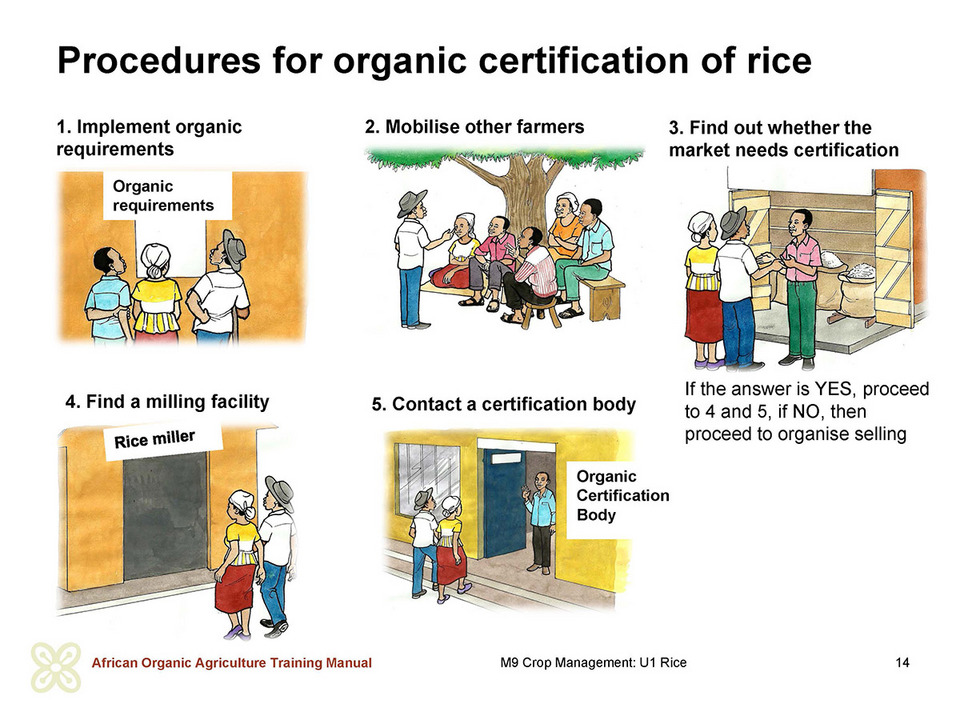Marketing and organic certification of rice production
Organic certification of rice production is only reasonable if done as a market requirement, i.e. there should be a market that demands it. As the organic markets continue to grow in Africa both domestic and export markets, more rice producers will need to verify and approve their systems as organic. Thus certification is expected to increasingly become important.
In such a case, interested farmers should be willing to adopt the general organic production requirements, like no use of synthetic pesticides and fertilisers, treated and genetically modified seeds, as well as other sustainable production methods as discussed in the previous sections of this chapter. Farmers should be willing to learn and apply new knowledge to find organic solutions to any existing challenges to rice production.
Other considerations include:
- Farmers should have a sizeable amount of land to produce rice beyond the household requirement (commercial volumes) in order to be able to cover the extra costs of certification. The land should also be owned by the producers or they should have assured a long-term lease on the land.
- The producers should have access to at least one processing facility (especially for milling and packing), where they can negotiate for preferential treatment of their harvests to minimise contamination. Eventually as volumes increase, they can acquire their own processing facilities.
- A group of farmers of the same village, with adjacent fields can form a producer organisation of organic producers to minimise the risks of contamination from neighbouring fields. For organic rice, it is also important to avoid any contamination with conventionally grown rice and other substances during processing. All postharvest equipment used for handling conventional rice should be adequately cleaned before being used for organic rice. It is also very important to use clean sacks that have not been used for synthetic fertilizers or any chemicals, or sufficiently wash them before using them for harvested produce.
Discussion – organic certification of rice production
Ask the participants if there are any farmers who are certified organic for rice production. Are there markets that require certified organic rice?

 tap and then scroll down to the Add to Home Screen command.
tap and then scroll down to the Add to Home Screen command.